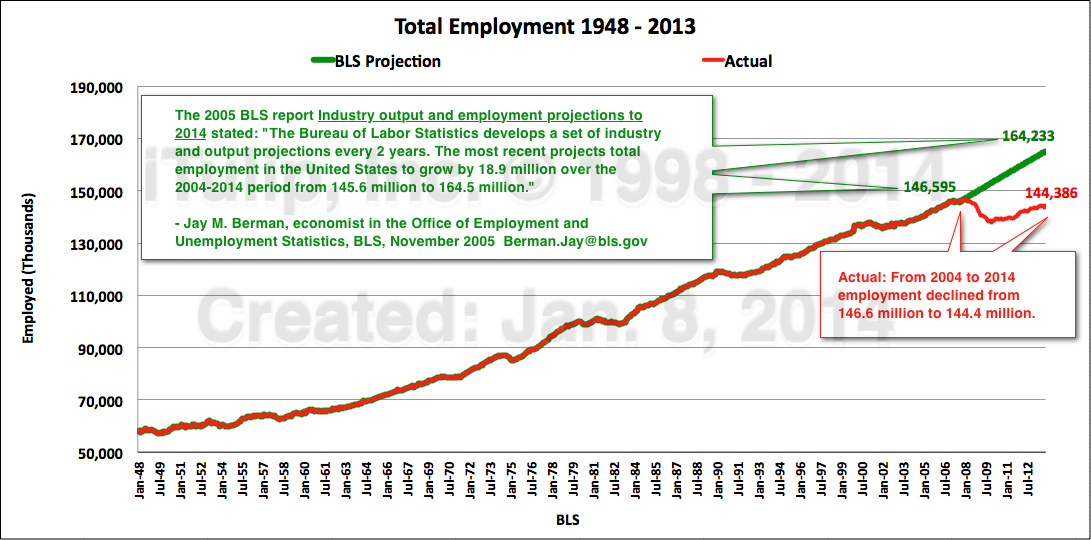Re: Are Rector's facts wrong?
I cannot vouch for the BLS' industry growth predictions. In 2007 they were projecting gaming as an employment growth area.
The BLS forecasting track record for employment overall is hilarious. The chart below is a comparison of 2004 BLS projections versus actual.

If the BLS were any good at forecasting industry growth then the US could be like China with the central government that targets subsidies to particular segments of the economy to keep it growing at 8% per year, except that to do that you need a trade partner like the US to buy the output that feeds the trade surplus that gets funneled into the government subsidized industries... and we are that trade parter.
Originally posted by wayiwalk
View Post
The BLS forecasting track record for employment overall is hilarious. The chart below is a comparison of 2004 BLS projections versus actual.

If the BLS were any good at forecasting industry growth then the US could be like China with the central government that targets subsidies to particular segments of the economy to keep it growing at 8% per year, except that to do that you need a trade partner like the US to buy the output that feeds the trade surplus that gets funneled into the government subsidized industries... and we are that trade parter.







Comment